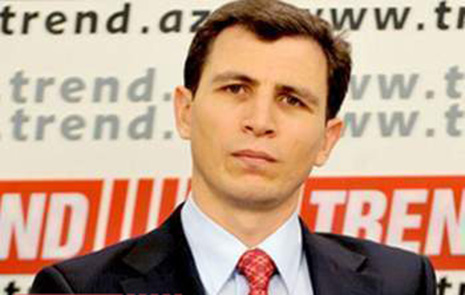He said that on Dec.15, heads of the foreign ministries of EU member states in Brussels agreed on new sanctions against Crimea.
“They prohibited the visit of diplomats there, imposed a ban on the purchase of 50 items of goods, agreed on a total ban on cooperation in financial and banking sector,” said Oruj. “The future will show whether it is good or bad.”
The EU should adopt similar sanctions in respect of Nagorno-Karabakh separatists as well, according to the MP.
He said that three days ago, the US Congress has decided to provide financial aid to foreign countries.
"It was decided to assist Georgia in the amount of $75 million, Armenia - $25 million, Azerbaijan - $13 million," said Oruj.
He went on to add that the national leader Heydar Aliyev at the meeting with US officials emphasized that the amendment 907 was an injustice.
If the United States stops allocating aid to Armenia (Yerevan received more than $2 billion over these years), it will have positive results, said the MP.
The allocated funds didn’t contribute to the democratization of Armenia and strengthening security in the region, according to Oruj.
“If the EU and the US stop their assistance to Armenia, then it will affect the settlement of the Nagorno-Karabakh conflict,” Oruj said. “In this case, we will witness a new period of development of relations between the US and Azerbaijan. Therefore, I urge both the US and the EU to stop providing assistance to Armenia.”
The conflict between the two South Caucasus countries began in 1988 when Armenia made territorial claims against Azerbaijan.
As a result of the ensuing war, in 1992 Armenian armed forces occupied 20 percent of Azerbaijan, including the Nagorno-Karabakh region and seven surrounding districts.
The two countries signed a ceasefire agreement in 1994. The co-chairs of the OSCE Minsk Group, Russia, France and the US are currently holding peace negotiations.
Armenia has not yet implemented four UN Security Council resolutions on the liberation of the Nagorno-Karabakh and the surrounding regions.
More about:















































